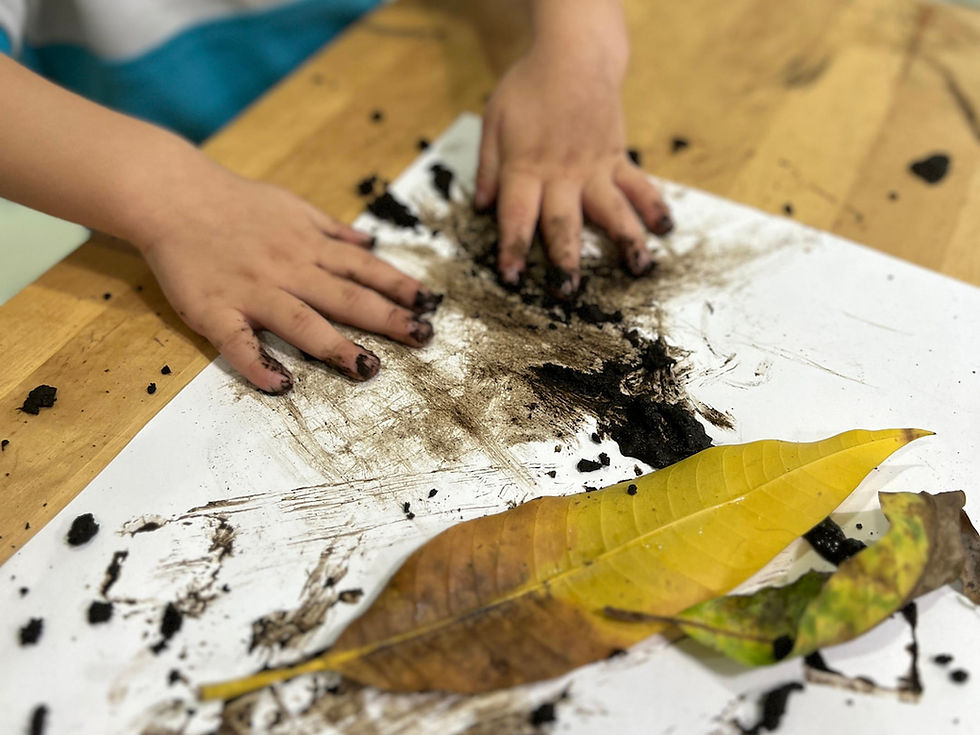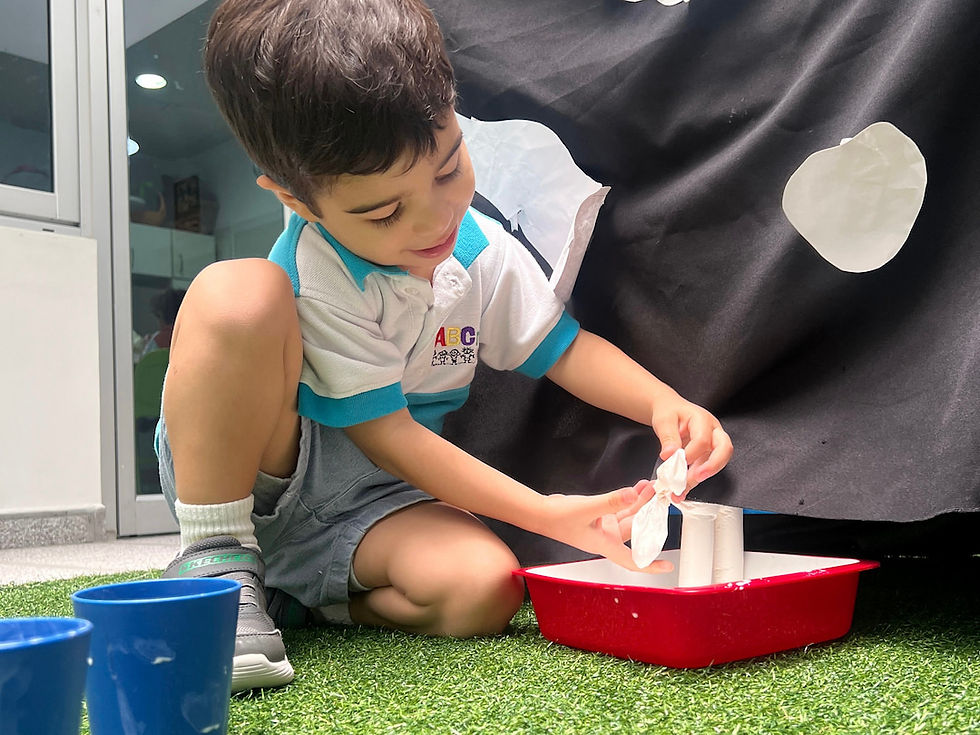Educational Games for Kids at Home: Learning through Fun
- Marianela de Sousa
- Aug 1, 2025
- 3 min read
Did you know that sometimes the best toys aren’t bought? An empty cardboard box, some spoons, or a blanket can open the door to a world of creativity, learning, and fun for children. During these holidays, at home, we have a unique opportunity: to play with them, enjoy time together, and, without them even noticing, help develop key skills for their growth.

A Short Personal Story
I grew up in a large family with six siblings, and I was the youngest. I remember spending many hours playing different roles, with the older ones teaching us naturally. Although we had toys, what really made a difference was the freedom to invent and solve things together, without complicated plans or constant supervision. We lived in a neighborhood full of friends, and those moments nurtured our creativity, cooperation, and independence.
Today, we know many families face different realities: both parents work, schedules are tight, and vacations don’t always match. But this story reminds us that, with a little intention and creativity, it’s possible to create spaces for educational play at home that support children’s development in a natural and close way.
The Impact of Having Educational Games for Kids at Home
Playing at home is not just entertaining—it also teaches. With simple materials and a bit of imagination, we can turn every moment into a meaningful and joyful learning experience. The American Academy of Pediatrics (2016) highlights that active, free play is essential for cognitive, social, and emotional development, encouraging creativity, attention, and self-regulation.

When children engage in everyday activities like folding clothes or sorting items by color and size, they’re developing fine motor skills, coordination, and attention to detail. Educational games for kids can be easy, even chores can be an opportunity to learn through fun. Simple activities like matching socks can turn into fun searches that boost memory and logical thinking. Also, building a store or a restaurant with boxes and dolls sparks creativity, while acting out stories or cooking simple recipes together promotes language, planning, and autonomy.
The Fundación América por la Infancia (2020) emphasizes that play with an educational intention strengthens emotional bonds and prepares children to face challenges with autonomy and confidence. Sharing these moments with siblings, friends, or family also helps develop social skills like cooperation, empathy, and conflict resolution. In this way, play becomes a space to learn how to relate to others and manage emotions—skills as important as academic knowledge.
What You Can Do Today
We know that amid daily responsibilities, it’s not always easy to find time for these activities. That’s why organizing small moments of intentional play can make a big difference in children’s development and well-being, without needing complicated materials. As Save the Children (2022) reminds us, involving children in daily tasks presented as play supports executive functions like attention, working memory, and emotional control.
Positively supporting play is key. Watch without intervening too much, let children take the lead, and celebrate their ideas and efforts, not just the outcome. You can ask open questions like “What do you think would happen if…?” and let the play flow according to each child’s interest and pace. Your attentive presence and affection will be the foundation for them to feel safe and motivated.
Remember, play is a necessity, not a luxury. As the American Academy of Pediatrics (2016) states, it is in these shared moments of enjoyment that lasting learning is sown.
Enjoying play at home doesn’t require perfection, just presence and love. Every moment counts.
References
Fundación América por la Infancia (2020). The Importance of Play and Movement in Child Development. Available at: https://americaporlainfancia.org/wp-content/uploads/2020/06/Juego-y-Movimiento-en-el-Desarrollo.pdf
Save the Children Spain (2022). The Right to Play: Beyond Entertainment. Available at: https://www.savethechildren.es/publicaciones/derecho-al-juego
American Academy of Pediatrics (2016). Media and Young Minds. Pediatrics, 138(5), e20162591. Available at: https://pediatrics.aappublications.org/content/138/5/e20162591




Love this beautiful reminder that the best "toys" are often just cardboard boxes, blankets, and imagination! Your personal story about growing up with six siblings—learning naturally through free play, without constant supervision—is so powerful. The point that everyday activities (folding socks, sorting colors) become educational games is spot-on. And the emphasis on presence over perfection, letting children lead, is the heart of it. For those moments when a quick digital break helps, unblocked games or unblocked g games can offer safe, simple options—but your post shows the magic of low-tech, high-imagination play. Thanks for this warm, wise perspective!